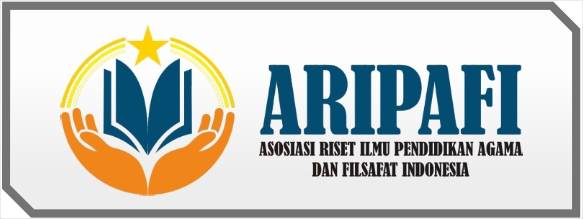Penerapan Nilai-Nilai Pancasila Terhadap Kehidupan Generasi Muda Di Era Globalisasi
DOI:
https://doi.org/10.59581/garuda.v2i1.2704Keywords:
Globalization, Literature Review, Pancasila ValuesAbstract
The aim of this research is to examine how the literature on Pancasila values has developed in the era of globalization. By conducting a literature review and looking at 17 journal articles released between 2019 and 2023. This research aims to convey knowledge or understanding about the application of Pancasila values to the lives of the younger generation in the current era of globalization which has resulted in some people forgetting these values. -value itself. This research shows that most Indonesian people do not apply Pancasila values in their daily lives and the same goes for social life in the era of globalization. This research can be used as a basis for further research in this area and can help increase the awareness of Indonesia's young generation towards the values of Pancasila. Future research could expand the scope and duration of the study, as well as improve the analysis to pinpoint patterns and modifications that need to be considered.
References
Aba, A., & Suryadi, K. (2023). Pendidikan Politik di Partai Politik yang Impoten: Kajian Kritis Fenomena Calon Tunggal pada Pilkada. https://doi.org/10.29407/pn.v8i2.19593
Amri, S. R. (2023). Pancasila sebagai sistem etika.
Aulia. (2017). PANCASILA DI ARUS GLOBALISASI DALAM MEMPERKUAT REFORMASI MORAL INDONESIA. SEMINAR NASIONAL : Aktualisasi Nilai-Nilai Pancasila Di Era Reformasi.
Bunga, M., Maroa, M. D., Arief, A., & Djanggih, H. (2019). URGENSI PERAN SERTA MASYARAKAT DALAM UPAYA PENCEGAHAN DAN PEMBERANTASAN TINDAK PIDANA KORUPSI. LAW REFORM, 15(1), 85. https://doi.org/10.14710/lr.v15i1.23356
Damanhuri, D., Bahrudin, F. A., Legiani, W. H., & Rahman, I. N. (2016). IMPLEMENTASI NILAI-NILAI PANCASILA SEBAGAI UPAYA PEMBANGUNAN KARAKTER BANGSA. Untirta Civic Education Journal, 1(2). https://doi.org/10.30870/ucej.v1i2.1890
Juneman, Meinarno, E. A., & Rahardjo, W. (2012). Symbolic Meaning of Money, Self-esteem, and Identification with Pancasila Values. Procedia - Social and Behavioral Sciences, 65, 106–115. https://doi.org/10.1016/j.sbspro.2012.11.099
Mangunsong, N., & Fitria, V. (2019). Pancasila dan toleransi pada tradisi keagamaan masyarakat Yogyakarta. Jurnal Civics: Media Kajian Kewarganegaraan, 16(1), 89–97. https://doi.org/10.21831/jc.v16i1.25312
Muryanti, M. (2018). Tindakan Korupsi sebagai Tindakan Imoral dalam Perspektif Fungsional (Kajian Film Korupsi dan Kita: Rumah Perkara). Profetik: Jurnal Komunikasi, 11(2), 32. https://doi.org/10.14421/pjk.v11i2.1317
Puji Asmaroini, A. (2017). MENJAGA EKSISTENSI PANCASILA DAN PENERAPANNYA BAGI MASYARAKAT DI ERA GLOBALISASI. Jurnal Pancasila Dan Kewarganegaraan, 2(1), 59–72. https://doi.org/10.24269/v2.n1.2017.59-72
Savitri, & Dewi. (2021). Implementasi Nilai - Nilai Pancasila dalam Kehidupan di Era Globalisasi. INVENTA, 5(2), 165–176. https://doi.org/10.36456/inventa.5.2.a3549
Silitonga, T. B. (2020). Tantangan globalisasi, peran negara, dan implikasinya terhadap aktualisasi nilai-nilai ideologi negara. Jurnal Civics: Media Kajian Kewarganegaraan, 17(1), 15–28. https://doi.org/10.21831/jc.v17i1.29271
Sitorus, J. H. E. (2016). Pancasila-based Social Responsibility Accounting. Procedia - Social and Behavioral Sciences, 219, 700–709. https://doi.org/10.1016/j.sbspro.2016.05.054













